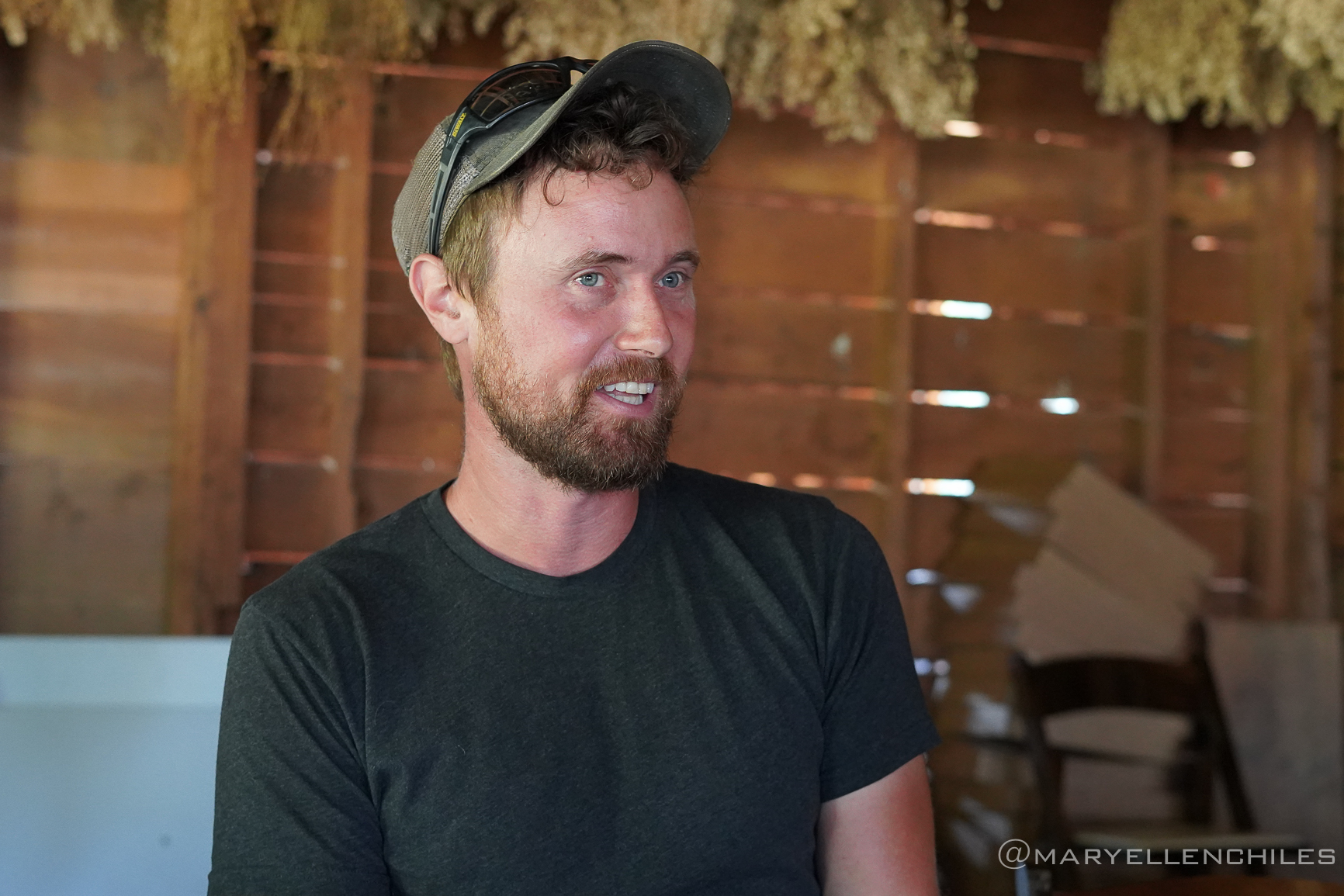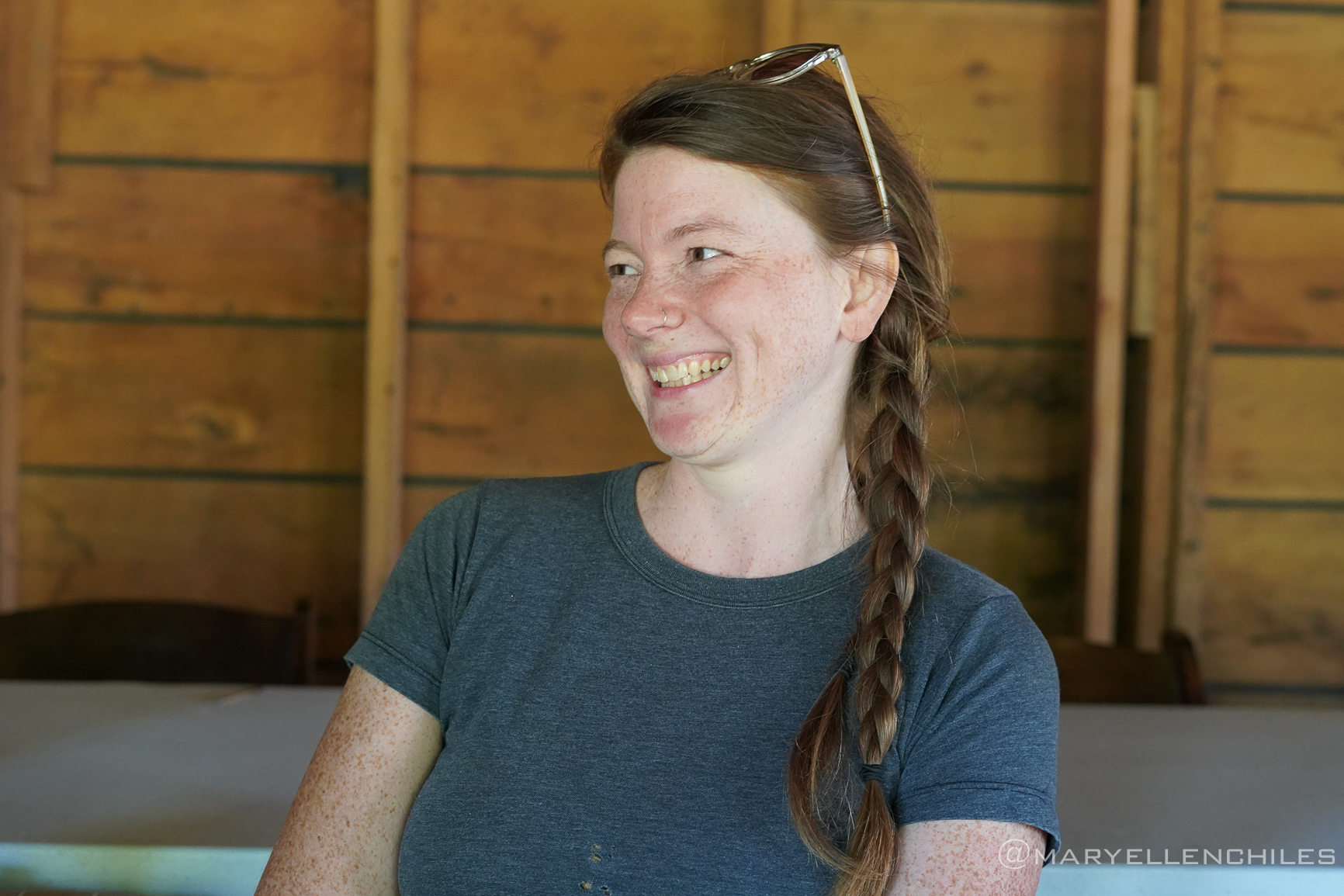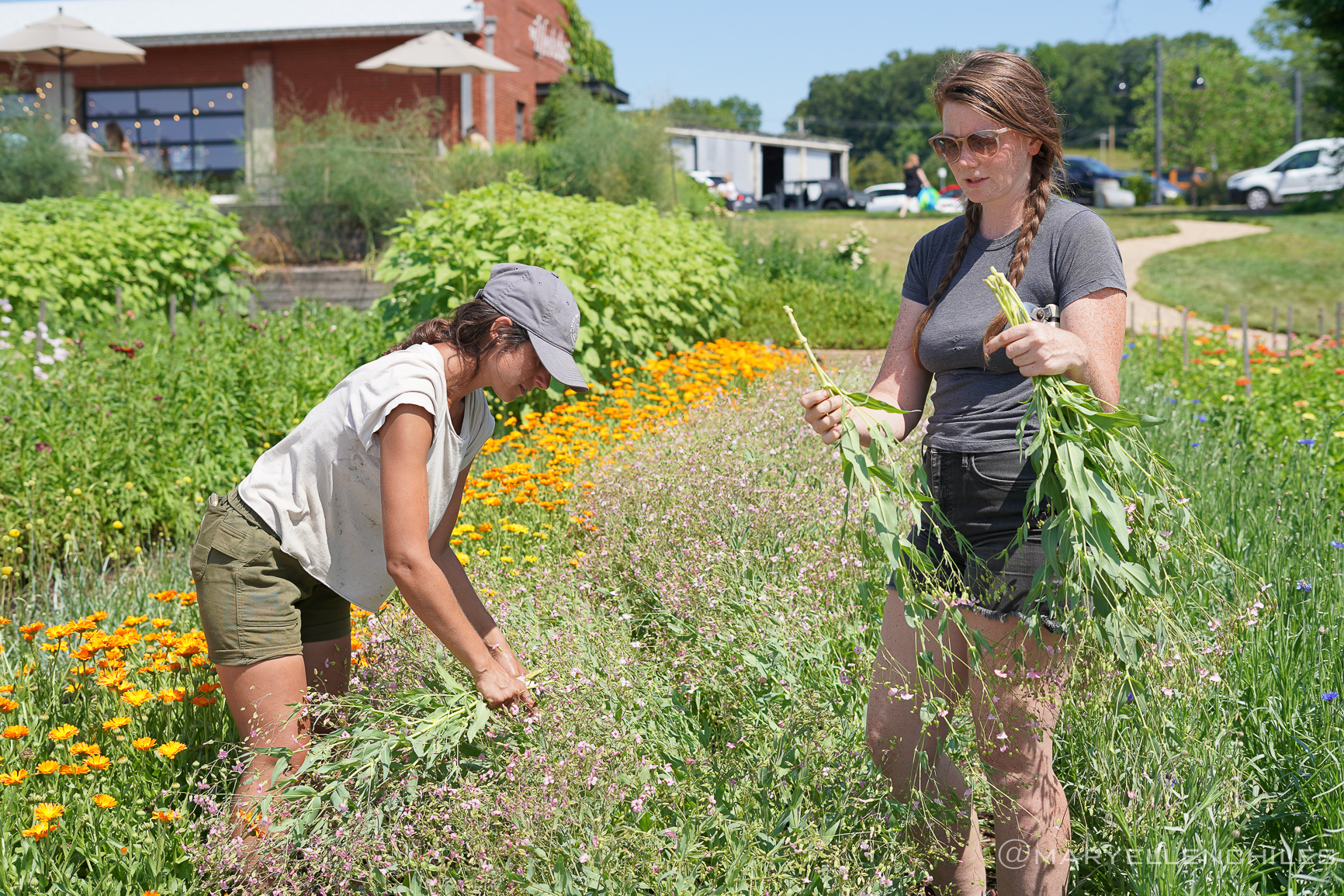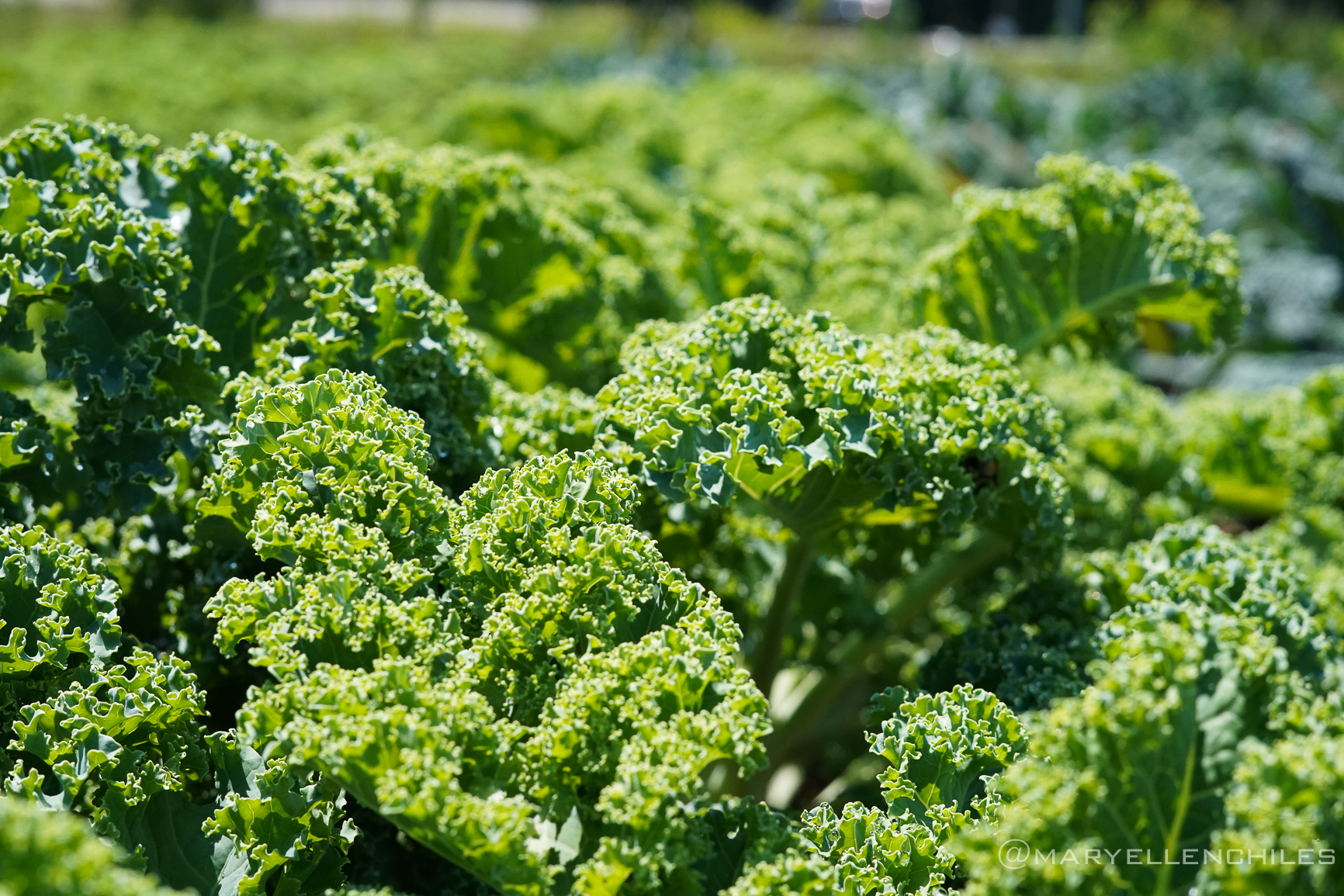Joni Mitchell once lamented that “They paved paradise and put up a parking lot.” Brendan Sinclair and Liesel McCleary tore up a road to make a farm on the banks of the Finley River.
It came as a surprise.
“We didn’t realize that we were turning a street into a farm when we first came out here,” Sinclair said. He moved to Ozark in the fall of 2019 and McCleary joined a few months later.
“This area is not known for great soil,” he said. “But this is also the first street we’ve turned into a farm and there’s not a roadmap for how to do that.”
The two had picked up many skills by developing farms around the United States and were ready to start from the ground up when they moved to Ozark to develop and co-manage Finley Farms. But that wasn’t always the case.
Sinclair inspired by winter storm to investigate where food comes from
“I didn’t grow up farming at all. I grew up playing video games and eating Taco Bell,” Sinclair said.
Raised in Michigan, he was shocked when a blizzard hit Denver and emptied the stores of eggs and milk. Realizing he had “no idea” where his food came from, he started volunteering on farms.

He earned an associate degree in liberal arts before spending a couple of years working with AmeriCorps, mainly helping with hurricane relief. Then he moved to Lansing, Michigan, to work at an organic farm on the campus of Michigan State University.
“I wasn’t thinking about how I was going to make it as a farmer,” he said. “My main goal in life was to play guitar on a slackline.”
In the meantime, he managed composting projects and developed educational programs in topics like culinary mushroom production. A mentor, Dr. John Biernbaum, relied on Sinclair’s ability to connect with people and encouraged him to consider farm education as a career path.
Initially, Sinclair planned to work in farming and continue playing music.
“I realized that urban agriculture could be a fun way to support my musical habits at night,” Sinclair said. “But I eventually ended up farming so much that I was too tired to play late-night shows. Now I just play banjo once in a while for fun.”
McCleary went from art school dropout to enrolling in organic farming program
McCleary was studying painting at the Kansas City Art Institute but found she didn’t care for sitting inside all day.
“I only got halfway through that and then I decided I really wanted to just travel. I was having a hard time being in one place,” McCleary said.
She didn’t have the money to fly or drive. So, she hopped trains instead, alongside her trusty mutt, Rabbit, a beagle mix named for her huge floppy ears. Sometimes McCleary’s sister Molly also joined. They shared gondolas with scrap metal. Railroad engineers never knew.
“If they do, you’re doing it wrong,” she said. “You have a map and know, more or less, through the network where the train is going.”
The network of hobos? Yes. That’s OK to say, she said.

She insists she did not stop and pluck watermelons from gardens for sustenance, though had she done so the inspiration to give back as a farmer would have been clear.
McCleary, who was raised in Lincoln, Nebraska, cherished summer and Christmas visits to her grandparents’ cattle farm in Neosho, Missouri. She started volunteering at farms around Kansas City after dropping out of art school, and her mom suggested a 9-month organic farming program at Michigan State.
What started as friendship blossomed into romance
The two became fast friends, and then some.
“It wasn’t until we castrated a little piglet together that I looked up over at her and realized she was the one for me,” Sinclair said.
Sinclair refers to McCleary as his “superpower.”
“We bought a bus in Colorado and started converting it, and I would never have done that by myself,” he said. “But because Liesel told me to go for it, we started to do things like that together.”
He does the same for her.
“I like to over-research things,” McCleary said. “But Brendan is great for pushing me to actually try and build the things that I’d have the skills to do, but might not have the confidence to do yet.”
The two share their life with a rescue coonhound mix named Handsome Jack, age 10. Their beloved pup Rabbit passed away in October at 15 years old.

Farming their way around the country
After meeting in Michigan, they moved to a yurt near Telluride, Colorado, growing veggies at 9,000 feet, then volunteered at a farm in Maui. But money concerns forced them to think long-term.
“We had to sell our car to pay for some vet bills and came to the painful conclusion that if we’re going to keep farming, we had to figure out a way to pay our bills,” Sinclair said.
The two developed an incubator farm in the Upper Peninsula in Michigan, then worked to create community-supported agriculture (CSA) and demonstration farms in the Detroit metro area. Along the way, McCleary studied botanical medicine, while Sinclair completed a master’s in sustainable food systems.
Three years working off the coast of Maine nearly burned them out.
Sinclair was hired to be the vegetable manager, while McCleary was supposed to work part-time at Turner Farm on North Haven Island. But after the livestock, creamery and farm manager left, the couple took on all of those jobs.
“We had the first Heirloom tomatoes sold on the mid-coast of Maine in four food co-ops from Belfast all the way down to Portland, which felt like winning (the) gold medal of farmer Olympics for me,” Sinclair said.
But working 80 or 90-hour weeks was unsustainable, Sinclair said
“It really showed us what we’re made of.”
“And where our edge was,” McCleary added.
Adam Houseman, the property manager at Finley, marvels at their work ethic.
“They’re so dedicated. I don’t know how they do it. I think they’ve figured out how to clone themselves,” Houseman joked.
Sinclair and McCleary have found that working on their own projects keeps them energized for their day jobs. They recently bought Snuggle Bug Farm in Arkansas. They don’t plan on leaving Finley, but it’s a place to decompress and for McCleary to have space to plant long-term perennial herbs.
Plants as medicine
“There are a billion different ways you can be an herbalist,” McCleary said. “The simplest is just to use it in cooking.”
McCleary’s mom is a botanist and Liesel recalls picking up a book on medicinal plants as a child. Self-taught for years, classes with herbalist Jim McDonald helped her understand herbalism in “a tactile way,” she said.
McDonald emphasized herbal energetics, which McCleary describes as “a framework for how to understand — through taste, and touch and smell — the actions of the plant.”
“For example, a bitter taste is always going to have some kind of stimulating action on the digestive system,” McCleary said.
After leaving Maine, Sinclair worked at a farm in Michigan while McCleary had an 11-month clinical apprenticeship with the Northeast School of Botanical Medicine. She worked alongside a man called 7Song, a renowned herbalist, at the Ithaca Free Clinic in Ithaca, New York.
“They have an herbalist, they have doctors, they have everybody all working with the same patients,” she said.
McCleary teaches workshops on using plants to heal maladies. Coming up: culinary herbs as medicine on July 16. You can sign up on the Finley Farms website.

From a road to a farm
All of those experiences paved the way for them to build gardens out of a road.
“Finley was the first project where we weren’t intimidated by the goals that were assigned to us,” Sinclair said. “It was a lot of work. But we knew what to do.”
They don’t do it alone, working the acre-sized farm alongside two full-time employees that are employed from March to October. A grounds lead at Finley also pitches in. The crew harvests produce and flowers for the Ozark Mill restaurant and the Workshop coffee shop. A bar called the Garrison is temporarily closed due to spring flooding.
Finley hosts a seasonal farmers market from 3-7 p.m. on Thursdays. Visitors are free to wander the grounds anytime, but McCleary and Sinclair also offer farm tours every other Friday at the farm property off 9th Street just north of Highway 14 in Ozark (next up July 14). Get directions here.
“We’re really happy to share things that we’ve learned,” Sinclair said. “I joke in our farm tours that this is a safe space to ask any questions because we’ve killed a lot of plants.”
They also offer seasonal workshops to help people struggling with the red clay and rocks, the quick weather shifts and the pests.
“So many people are like, ‘Yeah, my plants don’t grow like this.’ Well, our plants didn’t, either,” he said. “We’ve had the same challenges you’re having, and these are some of the things that we’ve done.”


